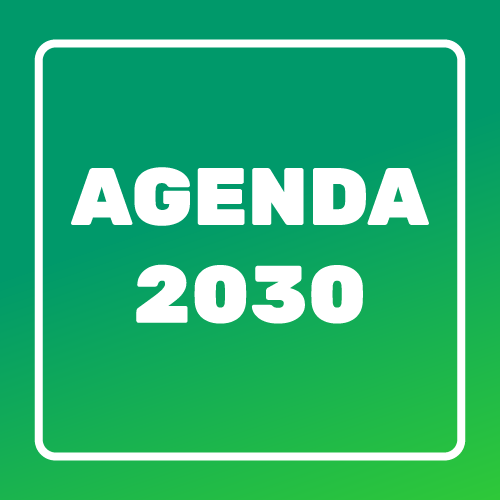Nine trends in diversity and inclusion

By Ricardo Salles, Esabela Cruz, and João Torres
The theme of diversity has never been more discussed than in recent times. In the past few years, companies and organizations have held forums and expressed their commitment to the issue. They also organized countless benchmarks on the subject.
Nevertheless, if we have advanced in the conversations about the topic, we must now accelerate our actions. In other words, companies that have shown an interest in diversity should now focus on the issue of inclusion.
While diversity is a concept primarily related to demographic representativeness, inclusion goes a step further. Inclusion is ensuring that the diversity within the company brings equal chances of development and promotion, including in the highest or most prestigious positions.
The theme is already important by itself, but there is a bonus: Diversity and Inclusion (D&I) generate positive results for companies, such as attracting and retaining the best talents, gaining innovation and creativity, increasing team engagement and improved organizational climate, and a gaining return regarding image and reputation. All this is presented in studies of universities, consultancies (McKinsey, KPMG, PwC) and publications such as Harvard Business Review and Scientific American.
In 2017 we were elected the three most influential Brazilians of the year in the issue of diversity in organizations. The recognition was granted by Out & Equal, the world’s largest organization in the field. We take this moment to list some of the D&I trends. They follow here:
1- The emergence of new actors
Brazilian companies are beginning to express an interest in D&I issues. Until 2016, the issue was exclusive to multinationals of American or European origin. Now, it begins to grow in Brazilian companies. The movement is still timid, but it seems inevitable.
2- The growth of the debate on intersectionality
Companies begin to address more intersectional issues – those that consider the needs of some subjects more broadly. If the group of women in your company, for example, has not yet addressed the specifics of the status of black, lesbian, or disabled women, it is time to turn their attention to this issue.
3-Communication that breaks traditional silos
Companies should emphasize inclusive communication. They should think about representativeness at all times, holding discussions on a perennial basis throughout the year. It is not only in November that we talk about black conscience and not only in June that we address LGBT issues. Communication fosters culture.
4- Formalization of a career in D&I
Some companies are creating Diversity & Inclusion positions to look at these issues in a more structured and consolidated way. Positions like the Chief Inclusion Officer, D&I managers and analysts become a new reality and also a career opportunity. However, affinity with the theme alone is not enough. There is a vast literature and complex methodologies to deal with these issues. Some diversity consultancies help companies in the matter, but you have to go further by educating yourself on the subject, listening to stories and connecting with people who lead the issues.
5- More space for discussion
The forums and committees for exchanges of good practices, increasingly common, begin to act in a more articulated way. That is, entities dealing with issues such as gender, race, LGBT or people with disabilities should start forming partnerships with each other, which enriches the discussion.
6- From Networks to Business Resource Groups
Affinity groups have long ceased to be just a networking space and have begun to collaborate with the companies’ talent attraction and retention strategy, now being called ERGs (Employee Resource Groups). Currently, we see the evolution of these groups, especially in multinationals, to BRGs (Business Resource Groups). New questions arise: How can diversity add value to the business? How does the organization’s D&I strategy talk and collaborate with business strategy? How to bring concrete results with diversity?
7- Positive results for the country
Some D&I actions outlined in 2016 are beginning to generate positive results for the country. In strategic terms, the business purpose and purpose of the company must be connected with these initiatives. There is the possibility of generating a strong social impact as a consequence of well-established strategies of D&I, Social Responsibility, Corporate Citizenship, and Volunteering.
8- Inclusion and diversity in the value chain
Some companies have taken their D&I policies into the value chain, encouraging customers and suppliers to develop practices aligned with their values. In the US, for example, large advertisers like General Mills and HP already expect their advertising agencies to have anti-sexual harassment policies and diversity programs.
9- People at the heart of the transformation
Dialogue with social movements, NGOs, and activists is fundamental. Diversity cannot be just about dashboards and powerpoint presentations. Managers and those responsible for the issue need to be in schools, universities and on the streets, willing to listen and learn from differences.
Finally, we leave here a call to action! Are Diversity & Inclusion already on the agenda of your company’s strategic objectives? If not yet, this may be the opportunity to connect to this global agenda, and that is associated with more balanced business environments, better results, and the construction of a more just and inclusive society for all people. Can we do this together?
Esabela Cruz is a leader of inclusion and diversity at the United Health Group.
João Torres is a partner of More Diversity.
Ricardo Sales is a founding partner of More Diversity and a researcher at ECA / USP.
Destaques
- Nova desordem mundial: Aberje Trends 2025 debate comunicação em tempos de tensão
- Comitê de Comunicação Interna nos Desafios da Liderança realiza sua primeira reunião
- Primeira reunião do Comitê Aberje de Comunicação e Reputação Organizacional discute o desafio da reputação em tempos de hiperconectividade
- Novo livro de Vânia Bueno explora relação entre comunicação e governança corporativa
- Aberje, FGV Comunicação e Fundação Itaú promovem master class sobre comunicação e impacto social para Mestrado Profissional
ARTIGOS E COLUNAS
Leila Gasparindo Comunicação Interna como Prova de Cuidado: segurança psicológica é também uma direção organizacionalVinícius Ghise Como a IA pode transformar nossa visão de sucessoJanaína Leme O que é mensuração e o que é o básico para começar a mensurar?Carina Almeida SXSW: Um viva às pessoas no debate sobre inovação!Pablo Assolini Será o fim da agenda de diversidade nas empresas?
































